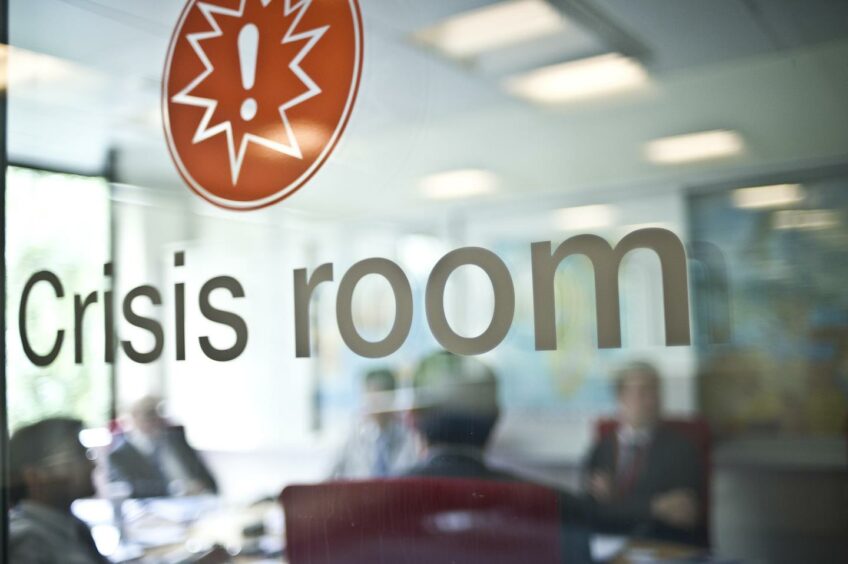
Crisis management is a crucial aspect in maintaining operational resilience for any modern-day organisation. Effective crisis management ensures an organisation is well-prepared for disruption, able to rapidly respond to and recover from a crisis, and deploys a collaborative approach when absorbing and interpreting information to inform rapid decision-making in high-pressure scenarios.
A new study by the Business Continuity Institute (BCI), sponsored by International SOS, underlines the value of the ‘people factor’ in both responding to and preparing for crises. The Covid-19 pandemic has shone an intense spotlight on the discipline of crisis management since March 2020, with the report focusing on the emerging crisis management trends borne out by this world-changing event.
A collaborative approach to a crisis – with a greater focus on staff health and wellbeing than previously seen before Covid-19 impacted the world – is now widely seen as essential to successful crisis response. The survey results indicate that organisations have realised that fully engaged, healthy staff need strong communications channels to be effective.
87% of respondents acknowledged mental health as a key consideration within their crisis management plans, with 40% of these organisations having their operations affected by their staff’s mental health in 2020. With many personnel working from home, wellbeing support was considered a key factor in protecting a company’s most valuable asset – their team.
As part of delivering effective support to colleagues in the office, at home and ‘in the field’, centralisation of key strategic processes – along with the ability to effectively communicate these processes through layers of central, regional, and country level teams – is key in creating a successful crisis management structure.
80% of survey respondents have entirely centralised their crisis management processes, or have adopted a hybrid approach where regions are allowed a degree of autonomy to manage their own events. The value of a centralised or hybrid approach is clearly demonstrated in the results, as 81% of organisations using this model reported ‘good’ or ‘excellent’ crisis management capabilities compared to 68% of those using a regionally-led or business unit-led response.
The aftermath of the Covid-19 pandemic has led to a majority (60%) of respondents reporting that their organisation will be more collaborative in its approach to crisis management in future, with 53% stating that greater involvement between crisis management and business continuity teams will enable them to work better together and avoid information being concentrated in discrete silos. Furthermore, a whopping 88% of respondents now see staff health and wellbeing as a key consideration of the crisis management team.
While we’ve established that effective crisis management needs effective, collaborative communication, the right people and best-in-class processes, what else is required?
The study teases out some other key findings from its 636 respondents, active in 18 sectors in 76 countries. It’s clear that crisis planning is becoming more agile and adaptive, as a direct result of the disjointed and often confusing responses of governments and international organisations during the pandemic. While 49% of respondents said that their organisation’s plans were very effective during the crisis, the majority found that they were not fit for purpose over the past 17 months. Three-quarters of those who had an ineffective plan reported that they were able to rapidly adapt existing plans, or create entirely new protocols, in the fight against Covid-19. Worryingly, there was a minority of organisations (10%) which revealed that they did not have a crisis plan in place when the pandemic first hit.
Perhaps unsurprisingly, respondents expressed a clear preference towards strong leadership during a crisis – with senior management leading crisis management responses in four out of five organisations. However, their involvement in the process varies across organisations, with the majority (42%) of senior management getting involved at points during the decision-making process, as well as giving final sign-off. The next most common way of interacting with the crisis was for senior management to take a controlling role throughout until the final decision was made, with 39% of those surveyed outlining this as their organisation’s preferred approach.
The Crisis Management Report 2021 also demonstrates that business continuity is starting to take a more strategic role in crises, with the pandemic putting the issue of business continuity programmes front and centre with senior management. As such, there is a marked uptick in demand for qualified advisers, with 70% of respondents indicating that business continuity plays an important role in devising crisis response strategy.
As we begin to progress into a changed world post-pandemic, the learnings from this report are a snapshot of the changes affecting the world of crisis management today. It’s clear that the effectiveness of crisis response is most affected by the wellbeing and communication abilities of those involved in the process – with greater collaboration and knowledge-sharing absolutely vital to a successful future for employers and employees alike.
To find out more about how International SOS can support your crisis management protocols, contact Claire Westbrook-Keir, International SOS’ Director of Key Account Management: claire.westbrook@internationalsos.com.
To download the Crisis Management Report 2021 please click here.
Recommended for you
